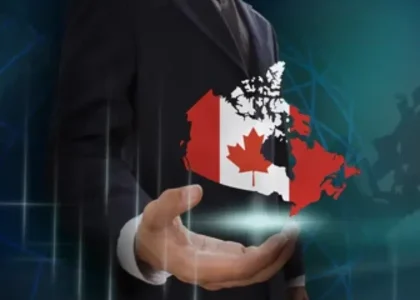Can Canada Truly Have It All?

Canada, renowned for its breathtaking landscapes, vibrant multicultural cities, and robust economy, often appears to be an idyllic nation. It is a country that promises much to its residents and visitors alike. However, beneath this promising exterior lie various challenges that test the country’s ability to truly “have it all.” This comprehensive analysis explores whether Canada can balance its vast opportunities and formidable challenges to create an ideal environment for all its citizens.
Economic Growth and Stability
Canada’s economy is one of the strongest globally, characterized by sustained growth, low unemployment, and a high standard of living. The nation’s economic stability is supported by diverse sectors, including natural resources, manufacturing, and technology. Major cities like Toronto, Vancouver, and Montreal are economic powerhouses, contributing significantly to national wealth. However, economic disparities remain a concern. Regions dependent on specific industries, like Alberta with its oil sector, can experience economic volatility. Ensuring balanced economic growth across all provinces and sectors is essential for long-term stability and prosperity.
Natural Resources and Environmental Concerns

Canada’s wealth in natural resources, from oil and gas to timber and minerals, has historically driven economic growth. However, exploiting these resources has environmental repercussions. The country faces the dual challenge of managing its resources sustainably while addressing climate change. Canada’s commitment to reducing carbon emissions and protecting its natural landscapes is evident in policies promoting renewable energy and conservation. Balancing economic interests with environmental stewardship is critical for future generations.
Healthcare System: Strengths and Weaknesses
Canada’s healthcare system is a source of national pride, providing universal access to medical services. The system is publicly funded, ensuring that all residents receive essential healthcare regardless of income. Despite its strengths, the system faces significant challenges, including long wait times for certain procedures, underfunding, and unequal access between urban and rural areas. Addressing these issues requires continuous reform and investment to ensure the system remains effective and equitable for all Canadians.
Education: A World-Class System with Gaps

Canada’s education system is renowned for its quality, from elementary schools to world-class universities. The emphasis on education contributes to a highly skilled workforce and a culture of innovation. However, gaps exist, particularly concerning the educational outcomes of Indigenous communities and other marginalized groups. These disparities highlight the need for targeted policies and programs to ensure all students have equal opportunities to succeed.
Immigration: Diversity and Integration
Canada’s welcoming approach to immigration has made it one of the most multicultural nations in the world. Immigrants bring diverse skills and perspectives, enriching the cultural fabric and driving economic growth. However, integration challenges persist, including recognizing foreign credentials, combating discrimination, and ensuring equal opportunities for all. Successful integration policies are crucial for maximizing the benefits of immigration and fostering social cohesion.
Indigenous Rights and Reconciliation

Addressing historical injustices against Indigenous peoples is a critical issue for Canada. The legacy of residential schools and land dispossession has left lasting scars. Efforts toward reconciliation, such as truth and reconciliation commissions, land acknowledgments, and policy changes, are ongoing. True reconciliation requires a continuous commitment to recognizing and addressing these injustices, ensuring that Indigenous communities are fully supported and respected.
Social Inequality and Poverty
Despite its wealth, Canada faces significant social inequality and poverty. Vulnerable groups, including Indigenous peoples, recent immigrants, and single-parent families, are disproportionately affected. Tackling these issues involves policies aimed at reducing income inequality, enhancing social services, and ensuring affordable housing. Comprehensive strategies are needed to create a more inclusive and equitable society.
Technological Innovation and Future Prospects

Canada is a leader in technological innovation, with strengths in sectors like artificial intelligence, biotechnology, and clean technology. Government and private sector investments in research and development are driving advancements. However, to fully harness these innovations, Canada must address the digital divide, ensuring that all regions and demographics have access to the benefits of technological progress. Fostering a supportive environment for startups and tech companies is also essential.
Political Landscape and Governance
Canada’s stable parliamentary democracy is a cornerstone of its national identity. However, regional disparities and political polarization pose challenges to governance. Effective political leadership requires addressing these divides, ensuring that all voices are heard, and maintaining transparency and accountability in government. Strengthening democratic institutions and processes is vital for national unity and progress.
Urbanization and Infrastructure

Rapid urbanization is reshaping Canada’s cities, demanding significant investments in infrastructure. Public transit, housing, and green spaces are essential to accommodate growing populations. Ensuring sustainable urban development while addressing the needs of smaller communities is a complex challenge. Strategic planning and investment are crucial to building resilient and inclusive cities.
Cultural Heritage and Contemporary Arts
Canada’s cultural landscape is rich and diverse, reflecting its multicultural population and Indigenous heritage. The arts scene is vibrant, encompassing traditional forms and contemporary expressions in music, film, literature, and visual arts. Supporting the arts and preserving cultural heritage while embracing modern influences is key to maintaining and celebrating this diversity. Investment in cultural initiatives fosters national pride and cohesion.
Striving for Balance

Canada’s quest to have it all involves balancing immense opportunities with significant challenges. Economic stability, environmental stewardship, healthcare, education, social equality, technological innovation, and cultural richness are all interconnected aspects of this balance. By addressing these challenges with thoughtful policies and a commitment to inclusivity, Canada can strive towards creating an ideal environment for all its residents. The journey is ongoing, requiring continuous effort and adaptation, but the potential for Canada to truly have it all remains within reach.
Click here for more visited Posts!





